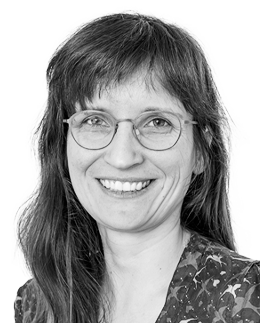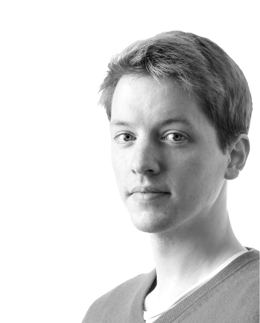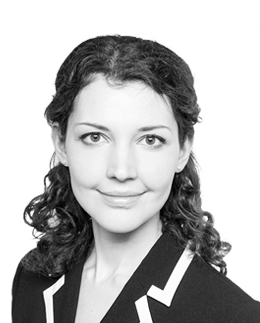Dr. Sophie Biesenbender studied politics and public administration at the universities of Konstanz and Bologna and public policy at Rutgers University, New Jersey. From 2008 to 2011 she was research assistant at the Robert Schuman Centre for Advanced Studies (European University Institute). After completing her dissertation in politics and public administration (2011) she was a postdoctoral researcher at Konstanz University. Sophie Biesenbender started to work at the DZHW (or its predecessor organisation iFQ - Institute for Research Information and Quality Assurance) in 2012. Since then, she has managed different projects with a focus on research information and research indicators. Between summer 2020 and spring 2022, she was acting head of department 2 (Research System and Science Dynamics). Since February 2022, she is head of office of the Commission for Research Information in Germany.

Dr. Sophie Biesenbender (geb. Schmitt)
Research Area Research System and Science Dynamics
Researcher
- +49 30 2064177-37
- +49 30 2064177-99
- Orcid
Projects
List of projects
Publications
List of publications
Presentations
List of presentations & conferences
Developing a Classification for Interdisciplinary Research Fields for the German Science System.Biesenbender, S. (2021, September).Developing a Classification for Interdisciplinary Research Fields for the German Science System. Vortrag im Rahmen der Veranstaltungsserie "Knowledge Organization Research Observatory (KO-RO)", ISKO UK – The UK Chapter of the International Society for Knowledge Organisation. Abstract
Research classifications are essential for the reporting and evaluation of research. As part of R&D statistics, disciplinary classifications have become crucial elements of CRIS systems and the processing of research information. Recently, the German RCD standard (short for Research Core Dataset) has been complemented by a newly developed classification to represent “fields of research” in addition to disciplinary classifications. From this perspective, research fields focus on interdisciplinary, issue- or problem-related research. The presentation provided an overview of the recently completed project to develop a classification for research fields, the project’s context, its methodological approach and results. |
Weiterentwicklung des Kerndatensatz Forschung: Prozesse und Ergebnisse.Biesenbender, S. (2021, März).Weiterentwicklung des Kerndatensatz Forschung: Prozesse und Ergebnisse. Vortrag im Rahmen des 5. VIVO-Workshop, TIB - Leibniz-Informationszentrum Technik und Naturwissenschaften, Hannover. http://doi.org/10.5281/zenodo.5084347 |
Helpdesk zur Einführung des KDSF: Einsichten aus vier Jahren Arbeit an und mit dem Standard.Biesenbender, S. (2021, März).Helpdesk zur Einführung des KDSF: Einsichten aus vier Jahren Arbeit an und mit dem Standard. Vortrag im Rahmen der Online-Informationsveranstaltung zum „KDSF – Standard für Forschungsinformationen in Deutschland“, Helpdesk zur Einführung des KDSF/DZHW, Berlin. |
Das Projekt " Entwicklung einer Klassifikation für interdisziplinäre Forschungsfelder im Rahmen des Kerndatensatz Forschung " .Biesenbender, S., & Simons, A. (2021, März).Das Projekt "Entwicklung einer Klassifikation für interdisziplinäre Forschungsfelder im Rahmen des Kerndatensatz Forschung". Vortrag im Rahmen des Kolloquiums des DZHW Berlin, DZHW, Berlin. |
Stand und Prozesse der Einführung und Weiterentwicklung des KDSF.Biesenbender, S. (2020, November).Stand und Prozesse der Einführung und Weiterentwicklung des KDSF. Vortrag auf der Tagung Fünf Jahre Kerndatensatz Forschung im deutschen Wissenschaftssystem – Umsetzung, Entwicklungen und Perspektiven, Deutsche Initiative für Netzwerkinformation (DINI) e.V., DZHW, Göttingen, Berlin. |
Fünf Jahre Kerndatensatz Forschung im deutschen Wissenschaftssystem – Umsetzung, Entwicklungen und Perspektiven.Biesenbender, S., Petersohn, S., & Herwig, S. (2020, November).Fünf Jahre Kerndatensatz Forschung im deutschen Wissenschaftssystem – Umsetzung, Entwicklungen und Perspektiven, Deutsche Initiative für Netzwerkinformation (DINI) e.V. Helpdesk zur Einführung des Kerndatensatz Forschung DZHW, Göttingen. |
Neue Wege in der Evaluation medizinischer Forschungsleistung: Informationsveranstaltung zum Projekt QuaMedFo – Qualitätsmaße zur Evaluierung medizinischer Forschung.Biesenbender, S., Herrmann-Lingen, C., Förstner, K., & Peters, I. (2020).Workshop Neue Wege in der Evaluation medizinischer Forschungsleistung: Informationsveranstaltung zum Projekt QuaMedFo – Qualitätsmaße zur Evaluierung medizinischer Forschung, Online-Veranstaltung an der Universitätsmedizin Mannheim. |
Neue Wege in der Evaluation medizinischer Forschungsleistung: Informationsveranstaltung zum Projekt QuaMedFo – Qualitätsmaße zur Evaluierung medizinischer Forschung.Biesenbender, S., Herrmann-Lingen, C., Förstner, K., & Peters, I. (2020).Workshop Neue Wege in der Evaluation medizinischer Forschungsleistung: Informationsveranstaltung zum Projekt QuaMedFo – Qualitätsmaße zur Evaluierung medizinischer Forschung, Online-Veranstaltung an der Universitätsmedizin Göttingen. |
Neue Wege in der Evaluation medizinischer Forschungsleistung: Informationsveranstaltung zum Projekt QuaMedFo – Qualitätsmaße zur Evaluierung medizinischer Forschung.Biesenbender, S., Herrmann-Lingen, C., Förstner, K., & Peters, I. (2020).Workshop Neue Wege in der Evaluation medizinischer Forschungsleistung: Informationsveranstaltung zum Projekt QuaMedFo – Qualitätsmaße zur Evaluierung medizinischer Forschung, Online-Veranstaltung am Universitätsklinikum Hamburg-Eppendorf. |
Anhörung der Vertreterin des DZHW-Helpdesks.Biesenbender, S. (2020).Anhörung der Vertreterin des DZHW-Helpdesks. Anhörung im Rahmen der Anhörung Evaluation des Kerndatensatz Forschung, 2. Sitzung der Arbeitsgruppe des Wissenschaftsrates, Arbeitsgruppe des Wissenschaftsrates zur Evaluation des Kerndatensatz Forschung, Köln. |





